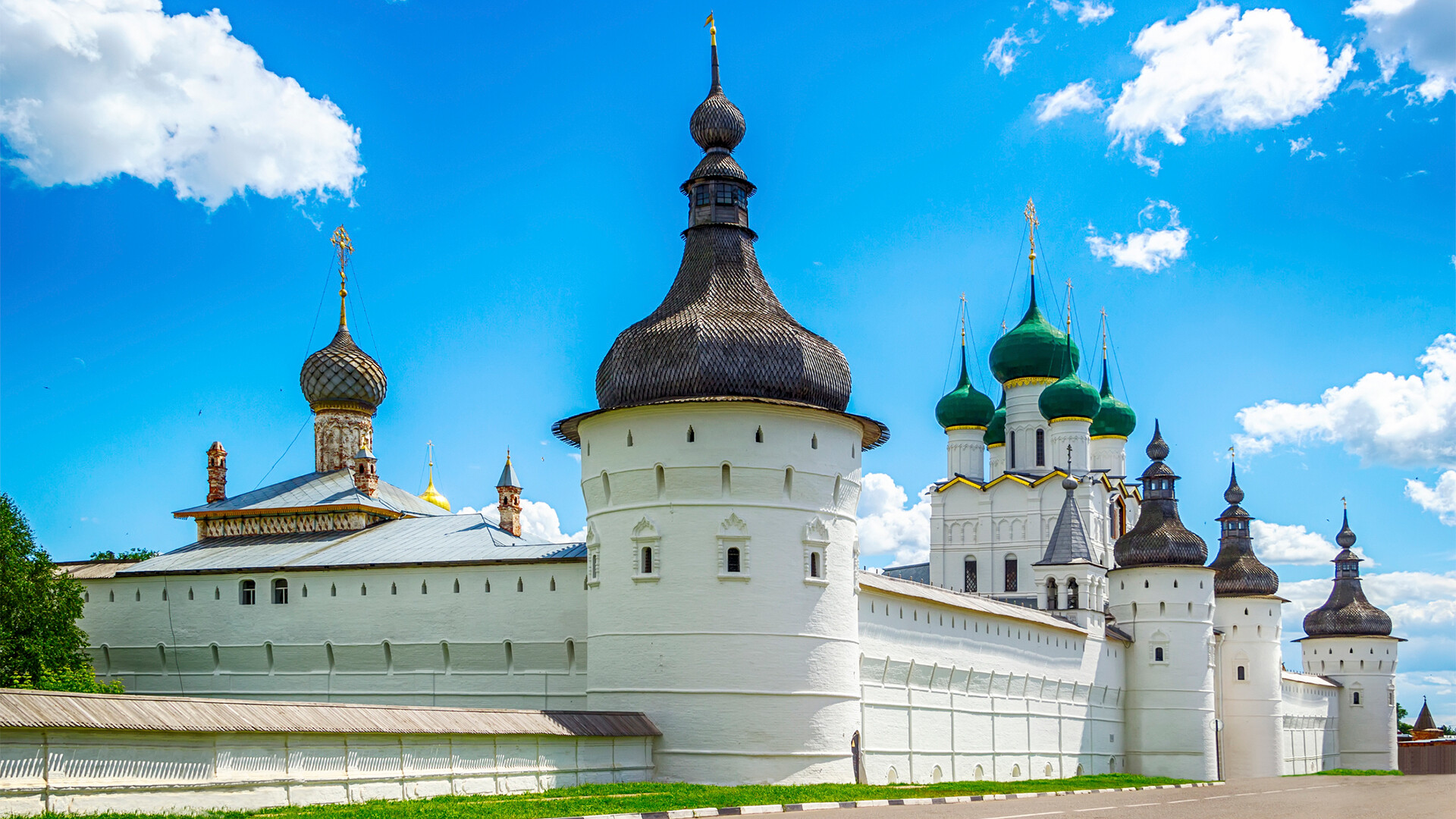
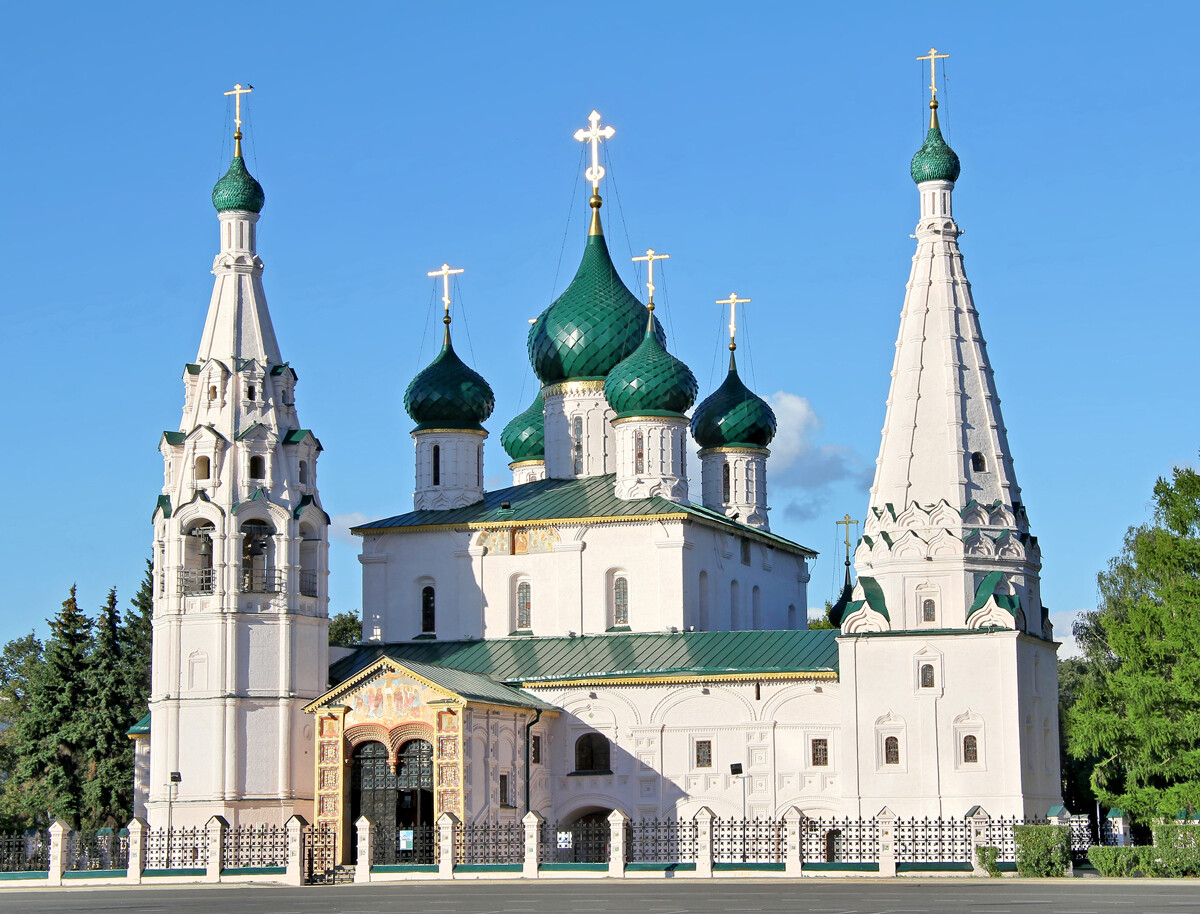
Church of Elijah the Prophet
DarthArt/Getty ImagesYaroslavl is located at the confluence of the Volga and Kotorosl rivers. This is the capital of the region (and the unofficial capital of the ‘Golden Ring’ tourist route) and a beautiful city with a thousand-year-long history; some of its landmarks are depicted on the 1,000-ruble bill.
The city is, at the same time, very modern – with bars and restaurants to satisfy every taste; that said, it is saturated with history and a rich cultural heritage. So, you can stay awhile and spend quite some time visiting attractions and churches… (don’t miss the Yaroslavl Museum-Reserve and the 17th-century Church of Elijah the Prophet!). You can read a detailed guide of Yaroslavl here.
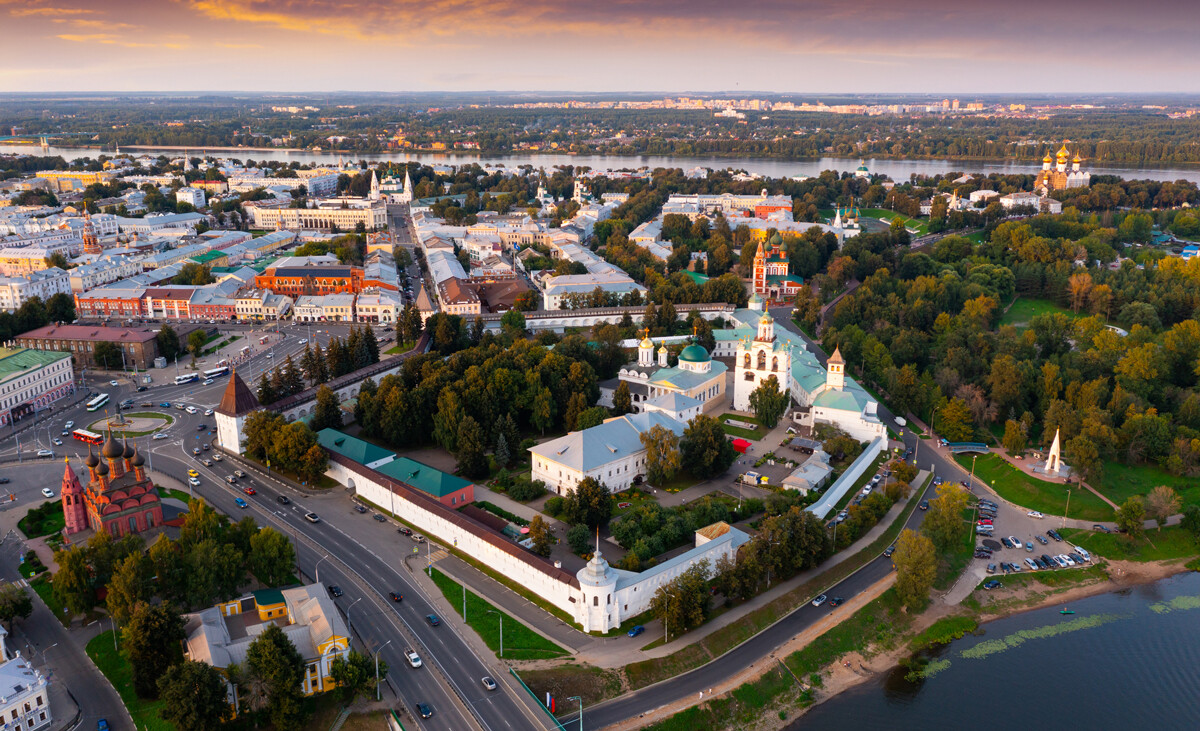
Aerial view of the city center
JackF/Getty ImagesEven if you don’t like to go to museums, we still recommend you to visit the ‘Golden Ring’ show market, where you can see the main attractions of all the ‘Golden Ring’ cities in one room – well, a miniature version of them! It’s not simply static architecture in miniature, it’s an entire living world. Trains and cars move around, power stations are in operation, you can also hear church bells ring. Night comes every 10 minutes; lights spark up in the cities and in the windows of apartment blocks.
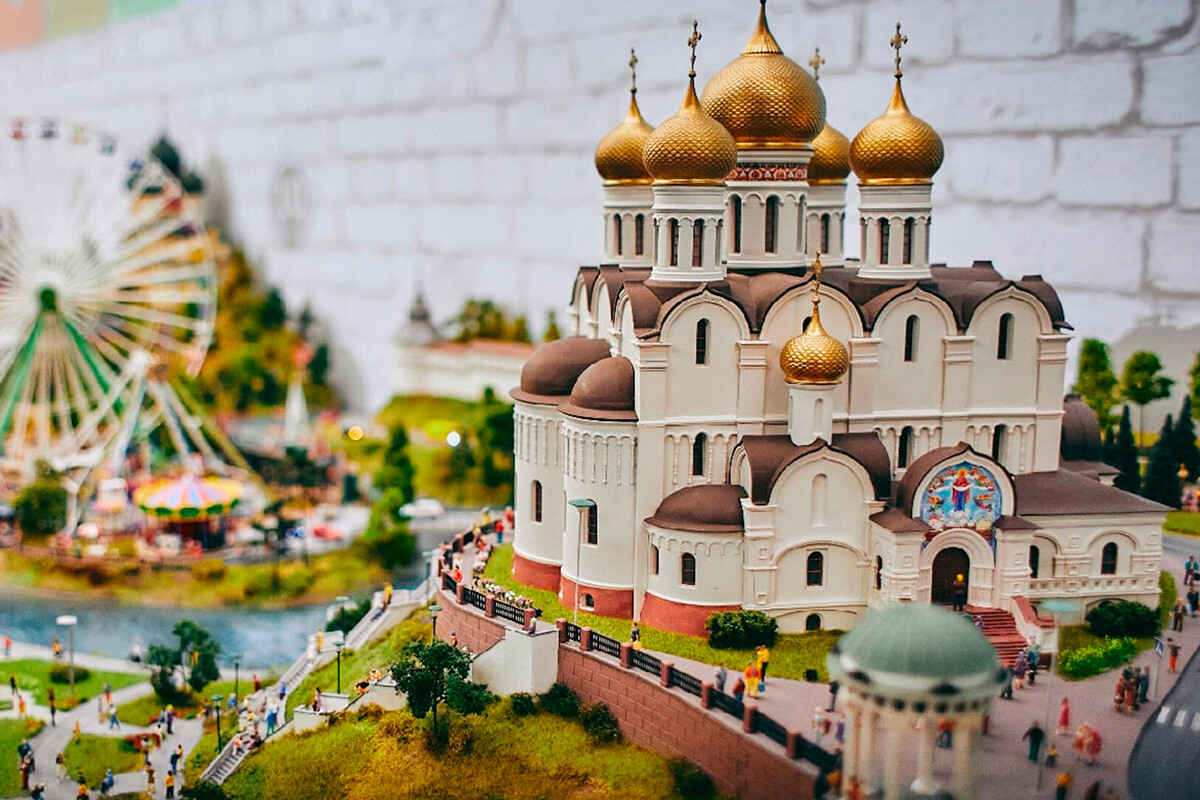
‘Golden Ring’ show market
showmaket.ruSuch an attraction is fun for both adults and children! You can see more videos and photos here.
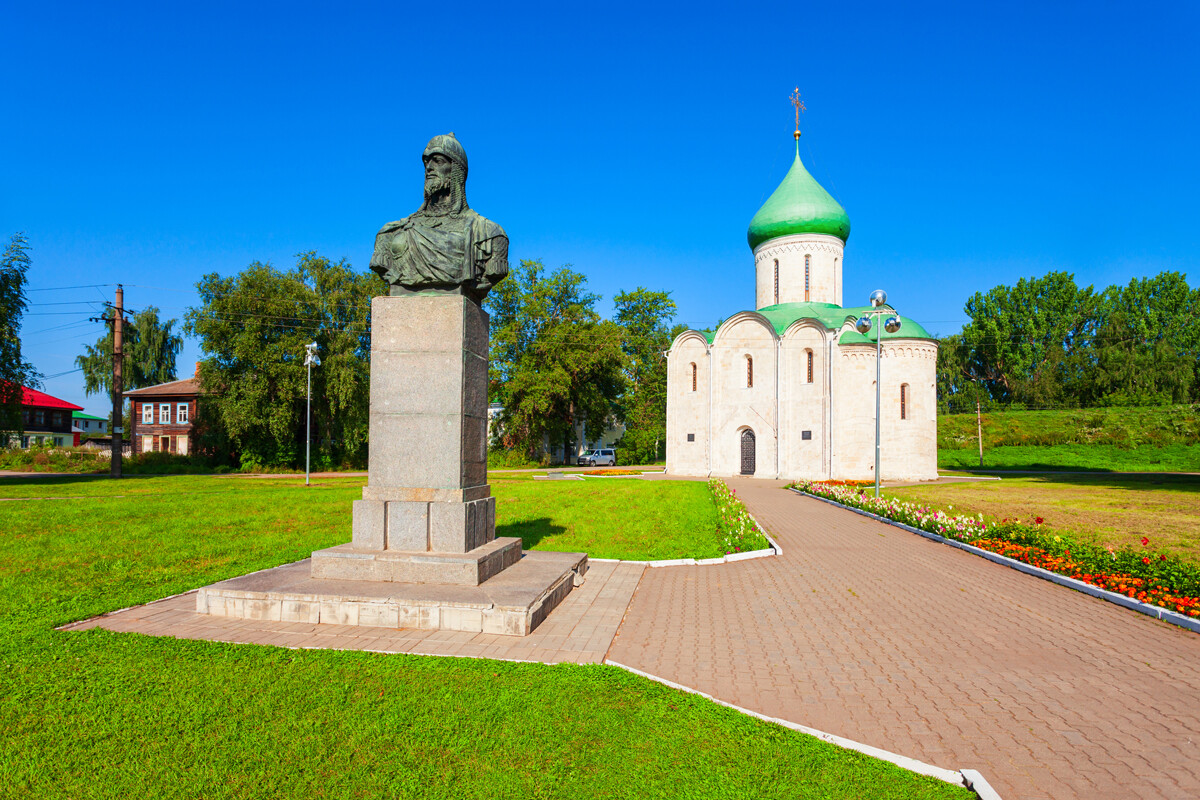
The 12th century Transfiguration Cathedral and the monument to Alexander Nevsky
saiko3p/Getty ImagesThis is the first city of the region along the way for a tourist en route from Moscow to Yaroslavl. It’s also included in the ‘Golden Ring’. Pereslavl-Zalessky has one of the most ancient surviving churches of Russia – the 1152 (!) Transfiguration Cathedral. Almost every house here has a unique “museum” with its own theme, from vintage irons to gramophone records.
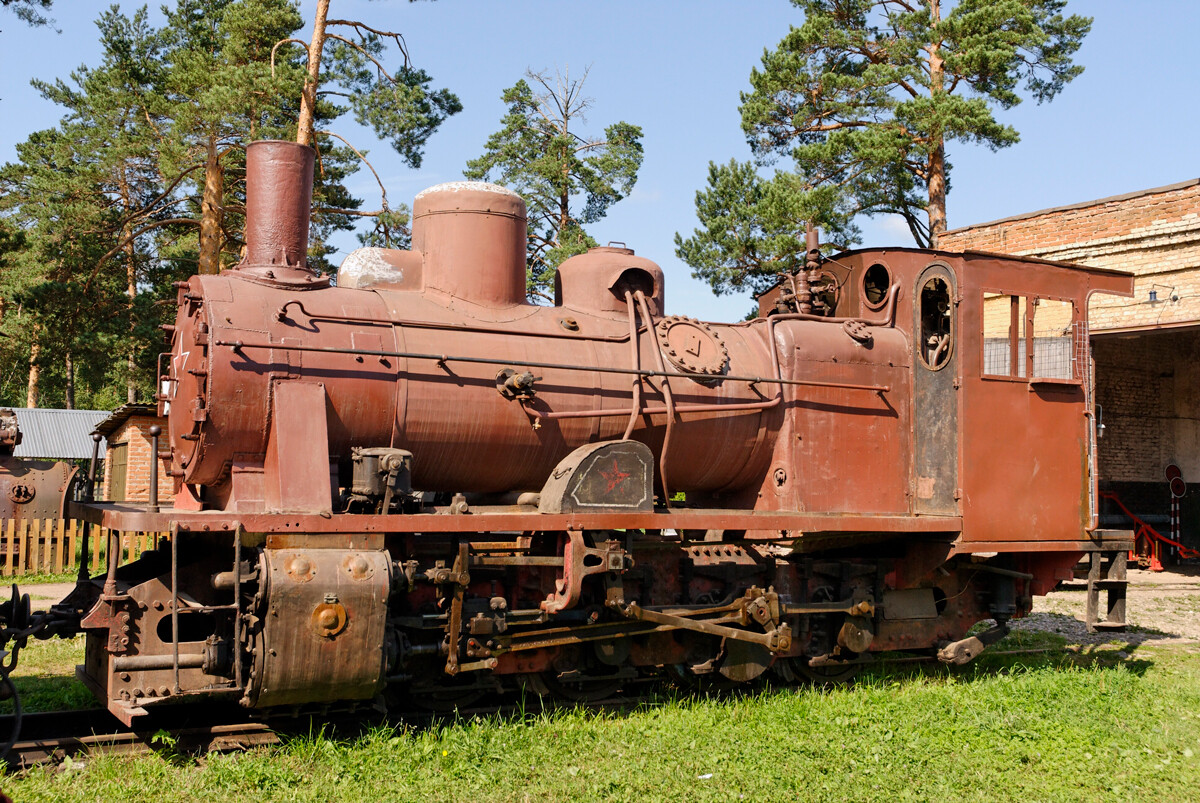
Locomotive Museum in Pereslavl
Legion MediaOne of the most unusual ones hides in the forests not far from the city – the Pereslavl Railway Museum under the open sky. Examples of different locomotives and coaches since the beginning of the 20th century are collected there. You can also have a ride on a real draisine (a light auxiliary rail vehicle).
You can read a detailed guide to Pereslavl-Zalessky here.
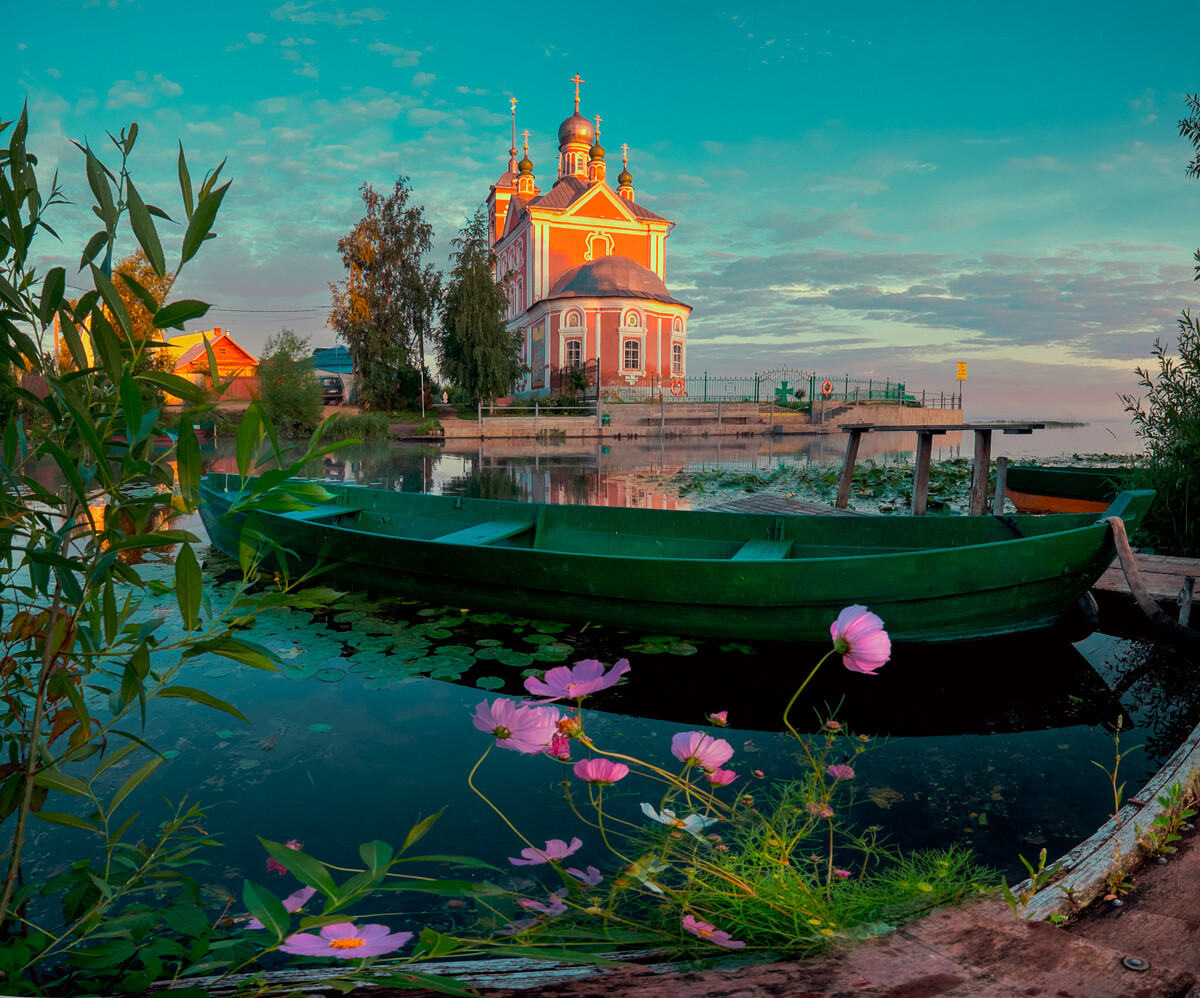
Lake Pleshcheyevo and the Church of the Forty Martyrs
Legion MediaPereslavl-Zalessky stands on the shore of quite a large body of water. This lake is famous for the fact that Peter the Great trained his amusement fleet there. A museum stands on the shore, where the small boat ‘Fortuna’ is exhibited, built by Peter the Great himself, according to legend.
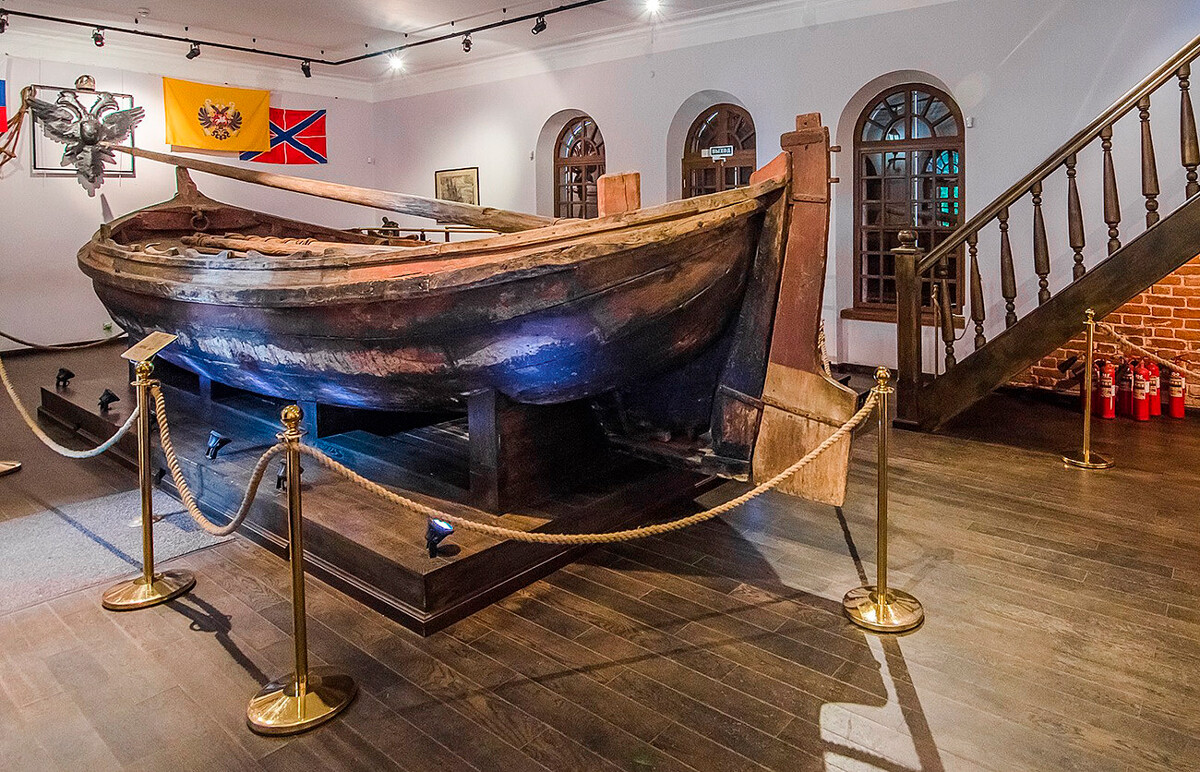
‘Fortuna’ boat built by Peter the Great
Belliy/WikipediaNear Lake Pleshcheyevo lies an ancient artifact of pagan Russia – the sacred ‘Blue Stone’. This is a giant boulder (estimates say it weighs around 12 tons) that changes its color to blue after rain. The locals worshiped the stone in pre-Christian times, but even after accepting Christianity, the stone was attributed mystical properties (it was supposed that the stone possessed dark powers).
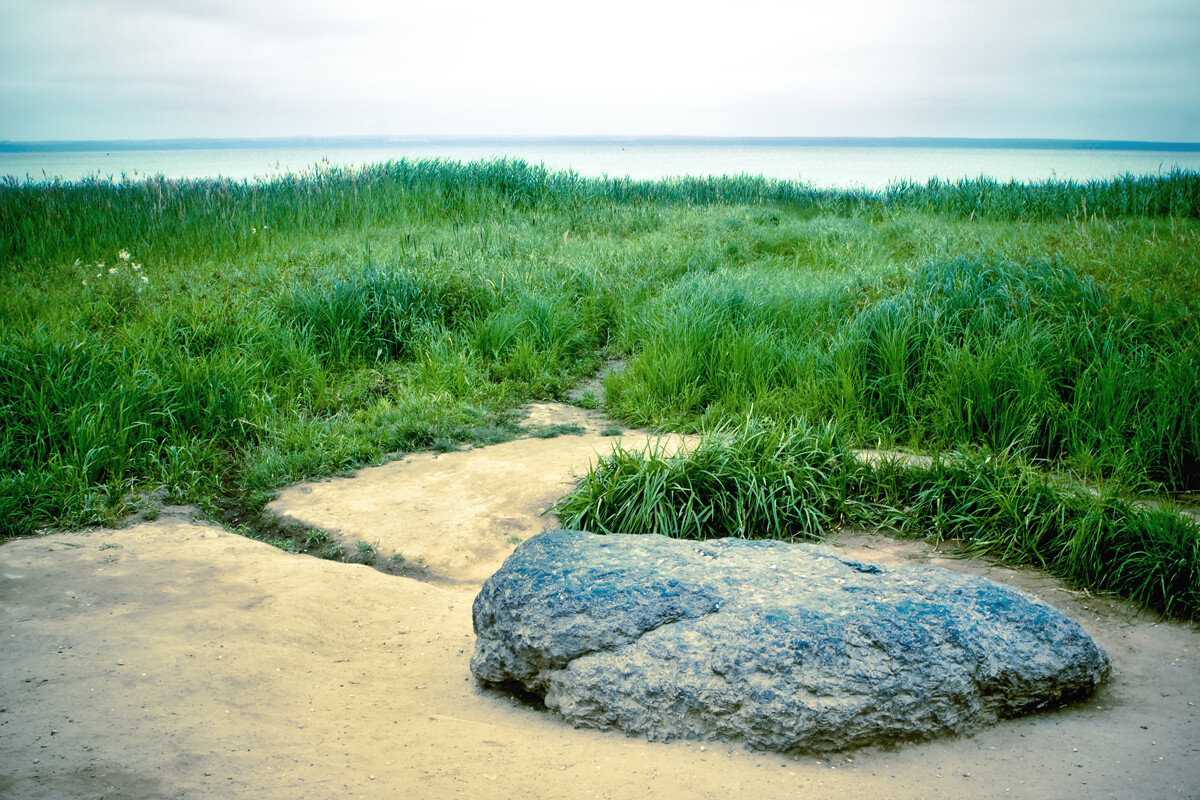
This Blue Stone was considered sacred
Mara Fribus/Getty ImagesPleshcheyevo is a paradise for eco-tourists; there are a lot of rare birds and animals that livee there, surrounded by a forest and picturesque places. You can stop at one of the recreation bases or pitch a tent and enjoy the view, ride a boat or SUP-boards. There’s also a kiteboarding school; also, during summer, hot air balloon festivals are often held.
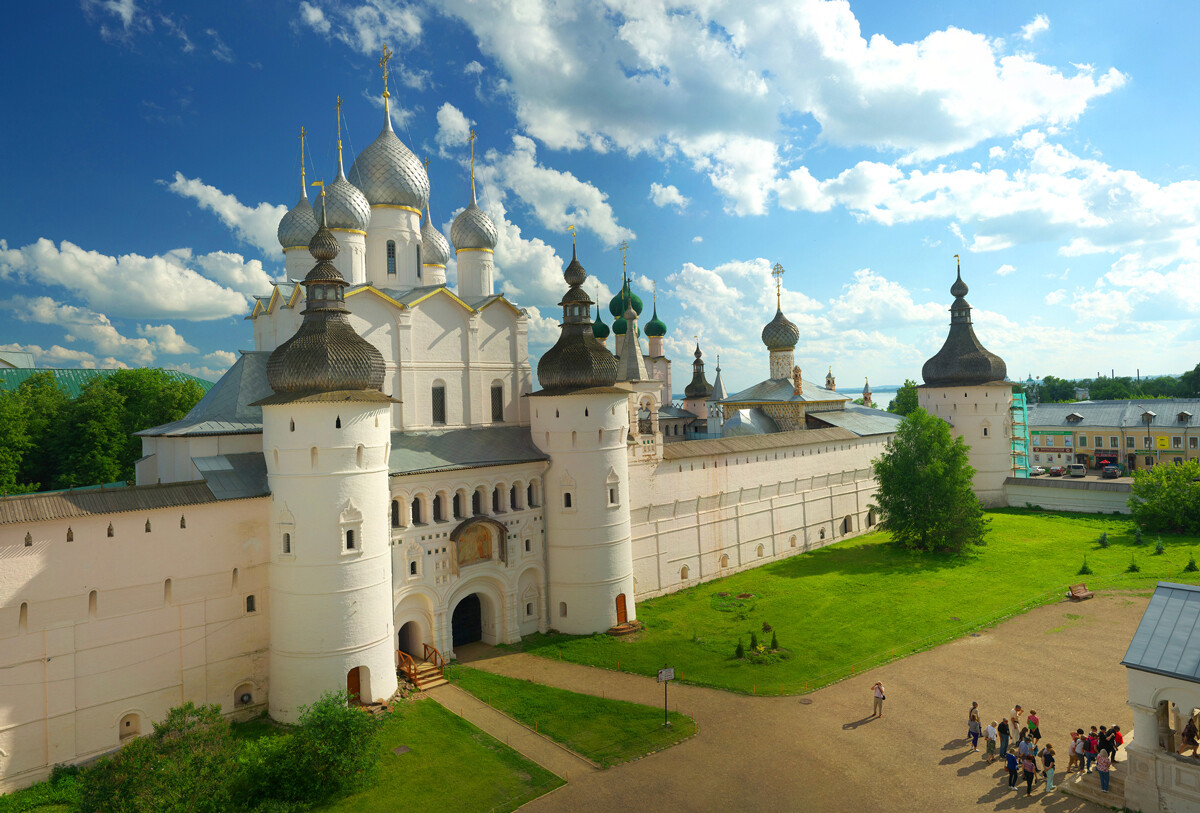
The Rostov Kremlin
can400/Getty ImagesThe next city along the way is Rostov Veliky (don’t mistake it for the southern Rostov-on-Don). Its main attraction is its unbelievably beautiful white-stone kremlin of. It was also captured in popular culture: many scenes of the iconic comedy movie ‘Ivan Vasilievich: Back to the Future’ were shot there.
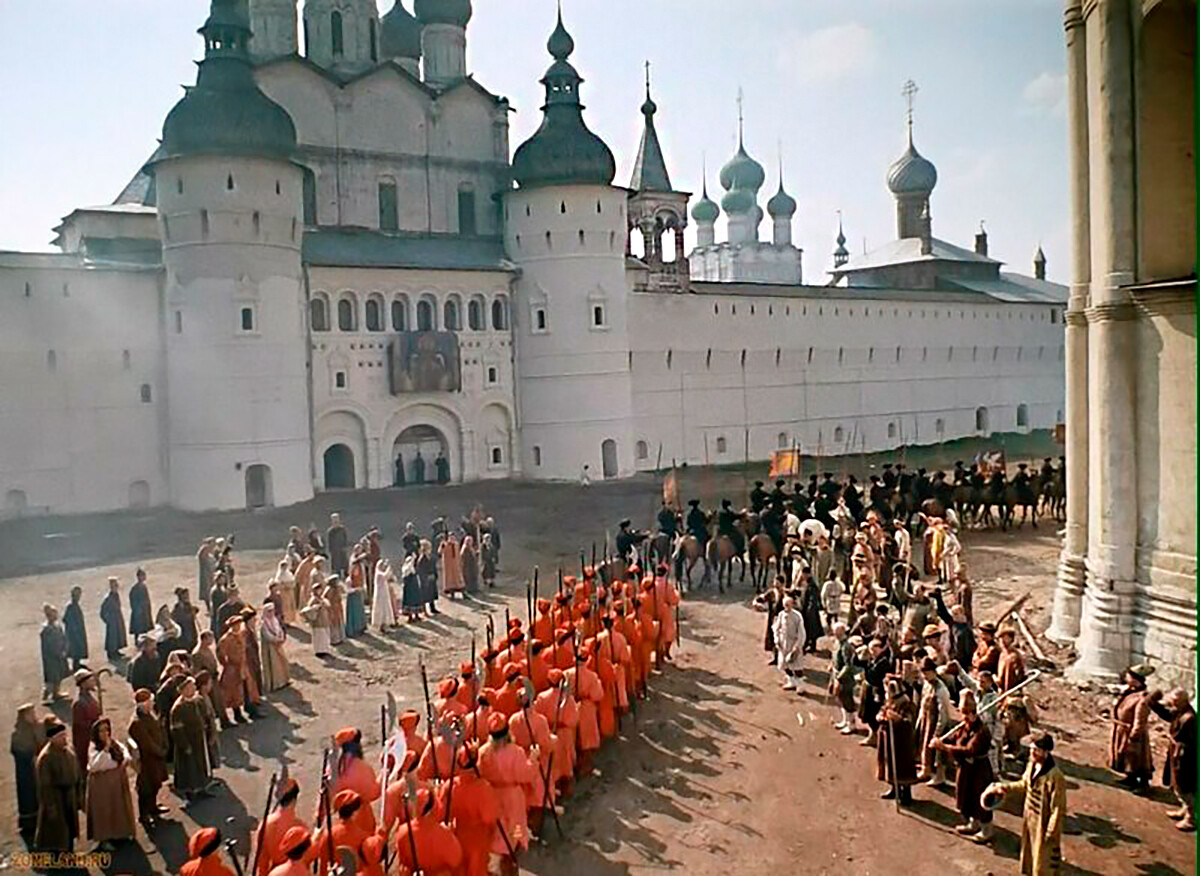
A still from ‘Ivan Vasilievich: Back to the Future’
Leonid Gaidai/Mosfilm, 1973The kremlin is not a defensive fortification like in other cities. It was built as the residence of Rostov metropolitan Jonas III in 1650-1680. The high walls with embrasures and lookout towers are more of a stylization and a tribute to architectural trends.
Inside, you should definitely enter the ancient Dormition Cathedral, admire the iconostasis and frescoes and take a stroll in its picturesque garden. Try pastries with kvass, medovukha or sbiten in the local refectory.
As a souvenir, you can get a decoration item with Rostov ‘finift’, an old local handicraft that originated in Byzantium, involves a technique known as ‘fire writing’.
You can read our Rostov guide here.
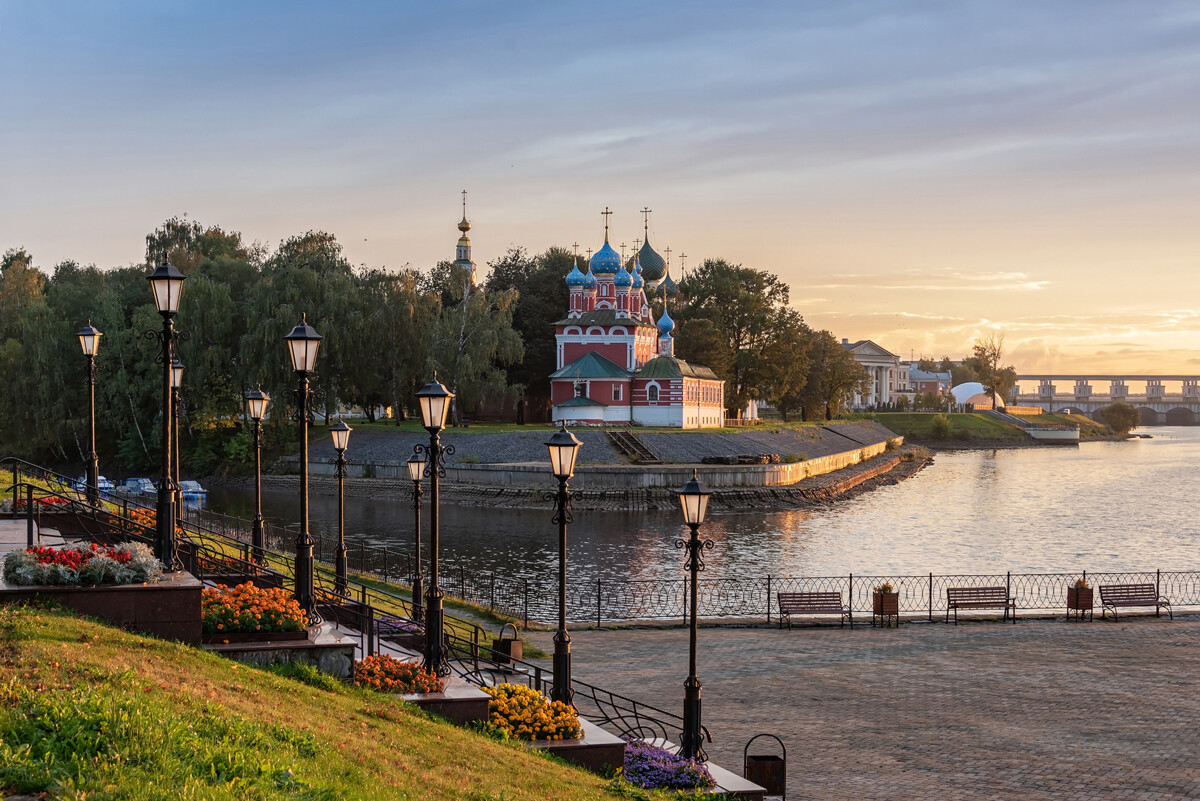
Uglich, the red church is the Church of Dmitry on Spilled Blood
Andrey Nikitin/Getty ImagesThis small town on a picturesque shore of the Volga River is famous across Russia. Not for its ancient churches or its nature, but as the place where Tsarevich Dmitry was killed, which ended the Rurikid dynasty and paved the way for the ‘Time of Troubles’.
The main attractions are concentrated in the kremlin, with a bunch of souvenir stores and a new embankment with trendy cafes.
Visit the chambers of Uglich princes of the 15th century, as well as the Church of Dmitry on Spilled Blood, built on the place where the tsarevich was killed – it has fantastic paintings inside.
And you can read our detailed Uglich guide here.
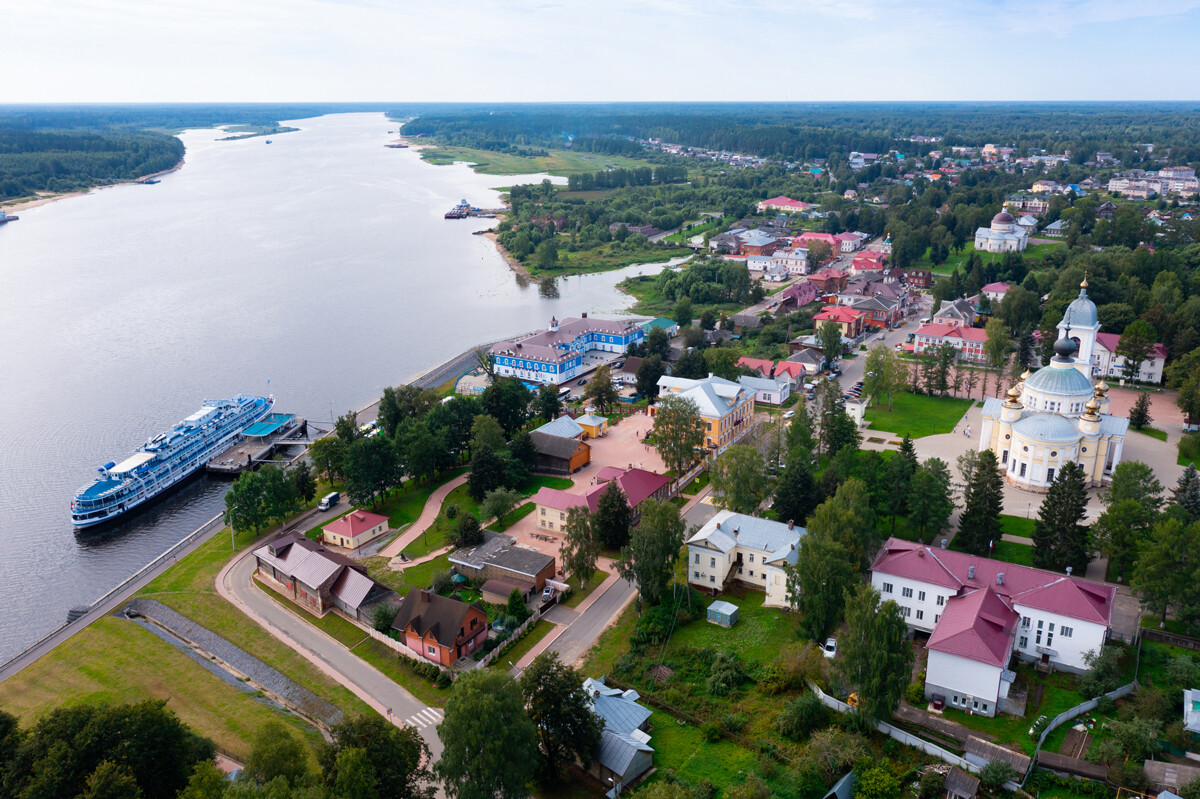
Myshkin
JackF/Getty ImagesCruise ships cruising along the Volga River always stop in the city called Myshkin. It is, probably, the most lovely (and cutest) town in the entire region, a small center which has preserved the spirit of Russian antiquity.
‘Mysh’ is Russian for ‘Mouse’, so Myshkin literally means the ‘Mouse City’. Thanks to its name, the city made the mouse its mascot. And now mice (no, not the real ones!) are all over the place – there’s a special museum dedicated to mice, while there are souvenirs wherever you go: mice of the most diverse varieties!
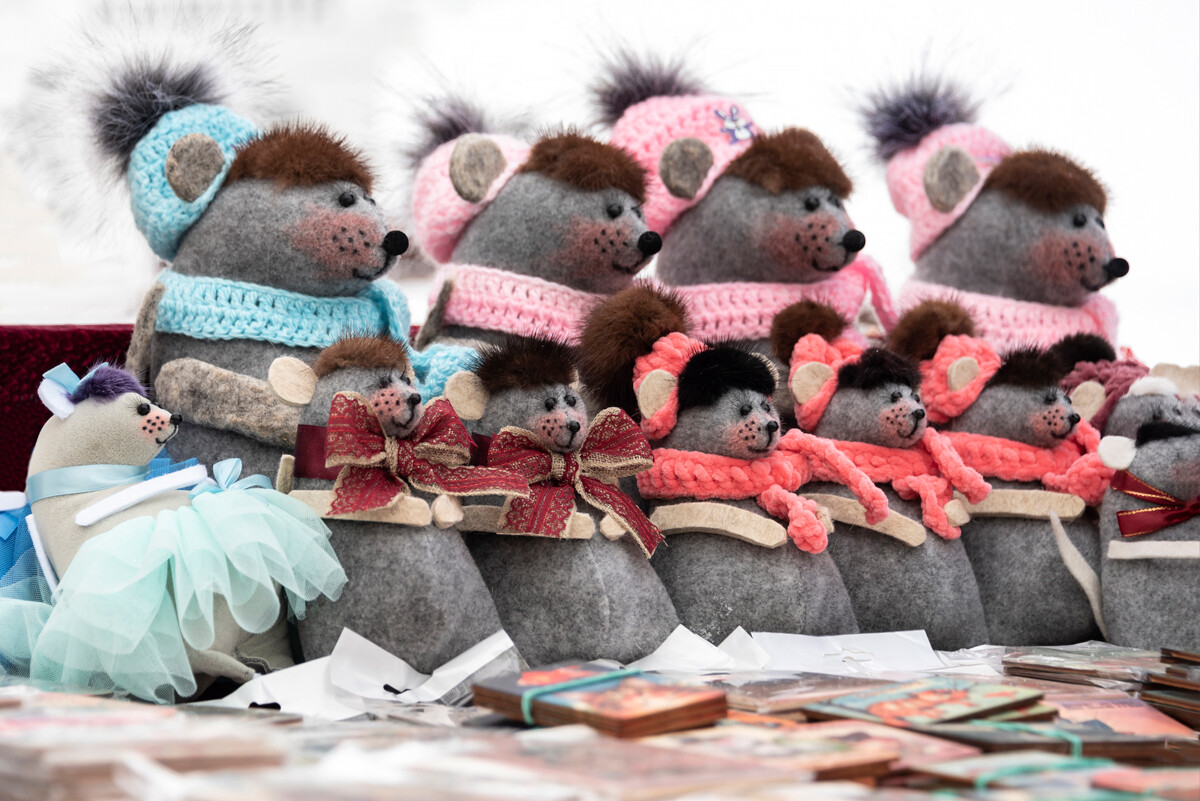
Mice of Myshkin
Andrey Nikitin/Getty ImagesIt’s considered a blessing to buy a small clay mouse and put it in your wallet – the locals believe it will attract money. The square, where the Volga River liners dock, offers a dozen types of smoked fish. A marvelous view of the Volga River, meanwhile, opens from the bell tower of St. Nicholas’ Cathedral.
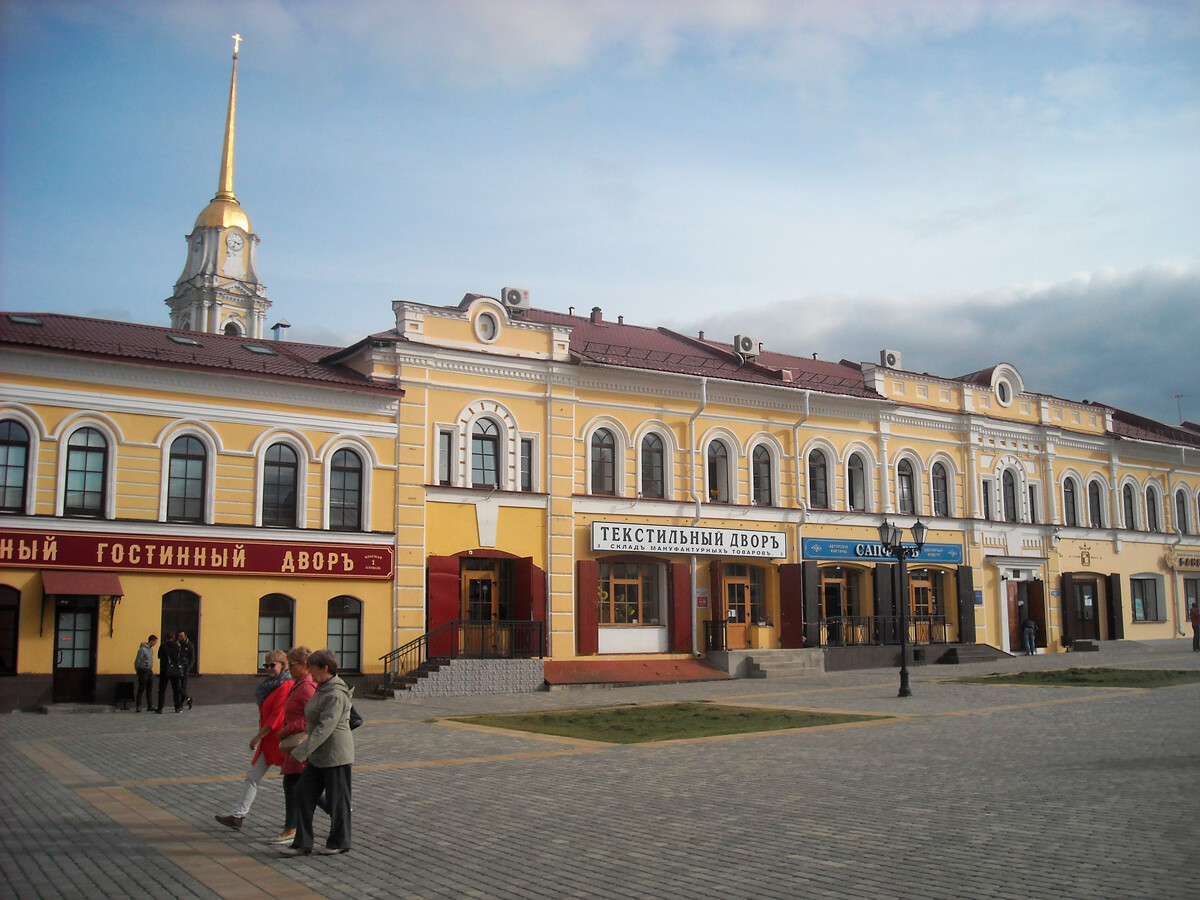
Retro street signs on the local Red Square
Squirrel82v (CC BY-SA 4.0)Rybinsk is yet another city on the shore of the Volga River. There, you can immerse yourself in the atmosphere of rich merchant life – the city was once a true trade center, which also dealt in fish. The Nobel Brothers Museum, who developed the oil industry in the city and on the Volga River, can also be found there.
It’s pure joy to have a stroll in Rybinsk, for, today, the main aspect of the city is that all the signs in the center are made in the retro merchant style. Even modern banks and stores attract visitors with their seemingly pre-revolution signs. Also, Rybinsk has a beautiful and very long embankment and even its own Red Square, which, despite the Lenin monument, is very reminiscent of a typical square somewhere in Europe.
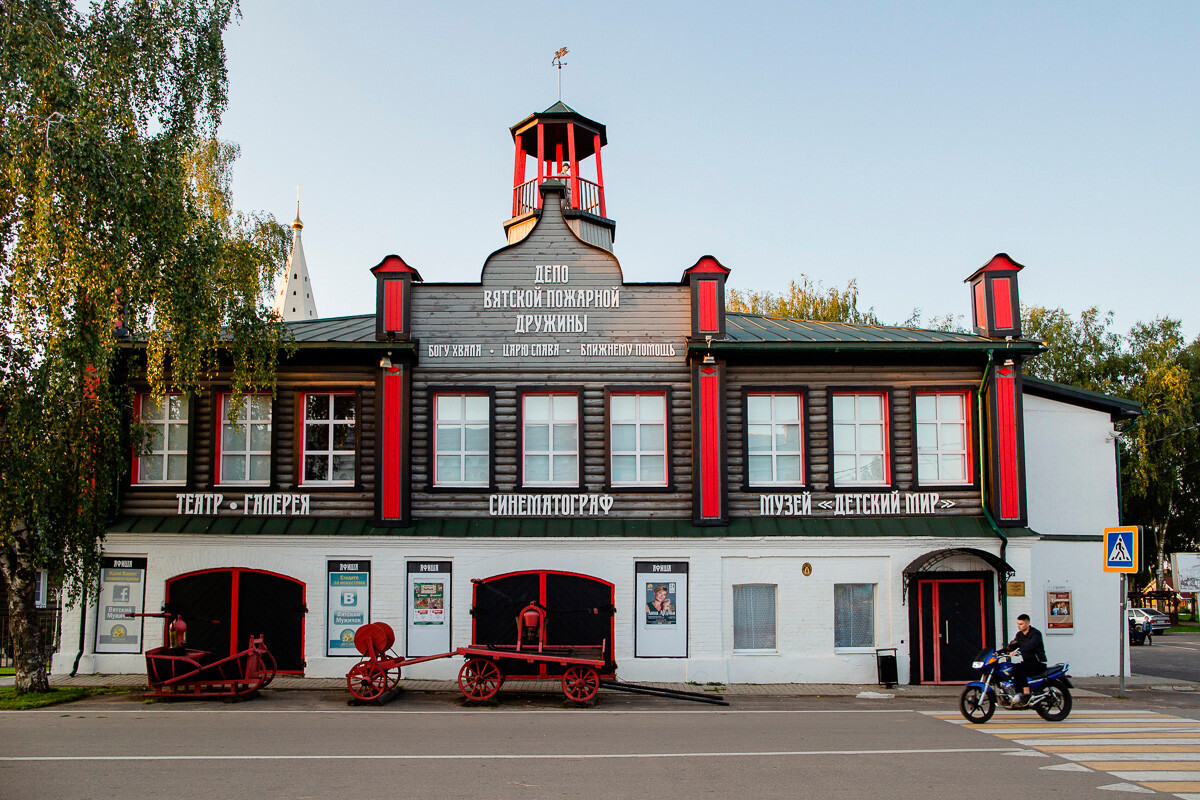
The village of Vyatskoye
Anastasia Stepanova/Museumfest.ruThe village of Vyatskoye 40 kilometers from Yaroslavl is considered one of the most beautiful in Russia (at least, according to the ‘Most Beautiful Villages of Russia’ Association). In recent years, it has become a true Mecca for tourists. Its center was restored in the Art Nouveau style of the beginning of the 20th century, right down to stone pavements and vintage buildings.
There are museums to satisfy every taste (including the Museum of Russian Entrepreneurial Spirit), stores with souvenirs and local delicacies, sweets, and liqueurs, as well as a multitude of cafes.
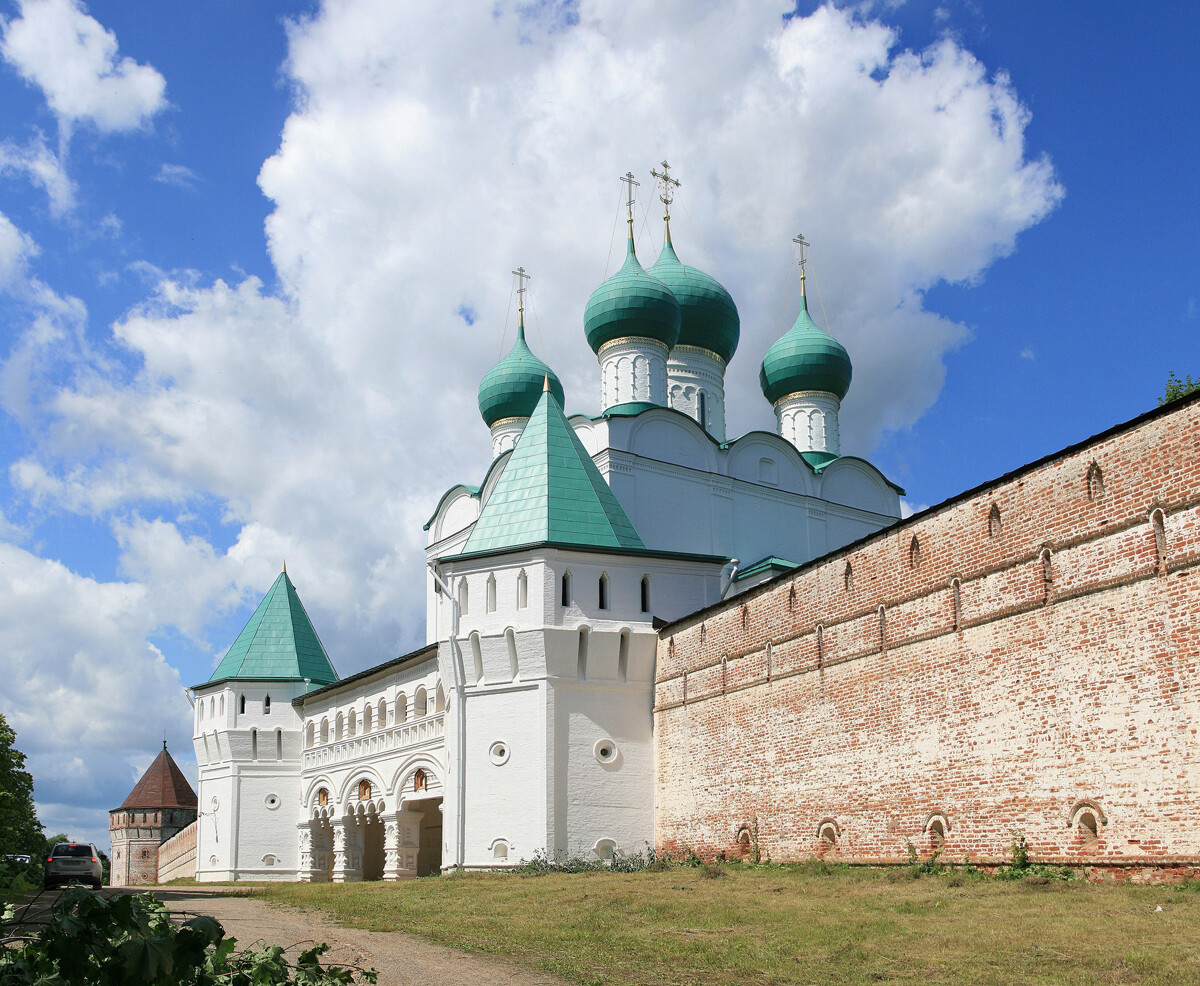
Borisoglebsky Monastery
Ludvig14 (CC BY-SA 4.0)There’s an old and very important monastery between Rostov and Uglich. It was founded in 1363 by monks Fyodor and Pavel with the blessing of Sergius of Radonezh himself – who, according to legend, picked this place (he was born not far). The monastery had always been a district center; it was visited by tsars and a village gradually formed around it, after which fairs and trade markets began to be held.
In Soviet times, religious services here stopped and a museum opened instead; but, today, the monastery is operational again. The impressive monastery walls and an imposing gate church speak of its former glory.
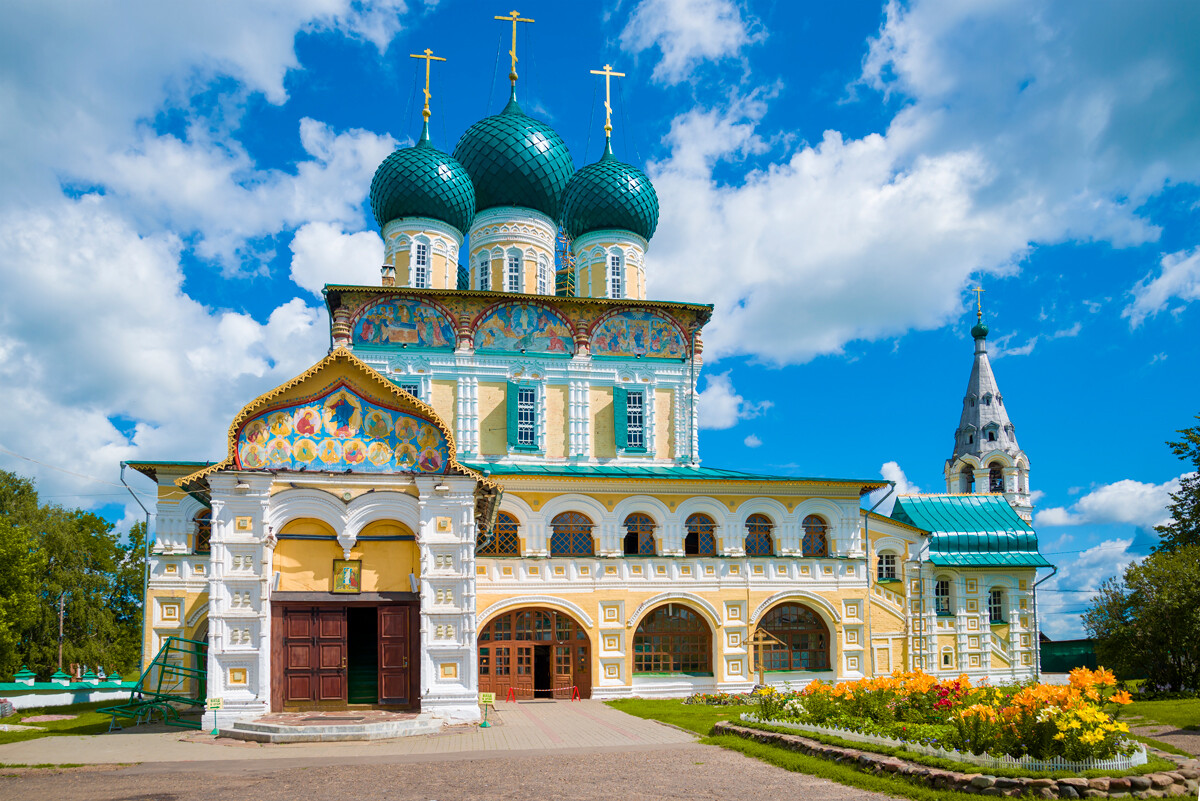
Resurrection Cathedral in Tutaev
Legion MediaThis city received its name after the revolution; before, it was called Romanov-Borisoglebsk. It was known for its mineral oil factory, as well as for its linen and fur manufactures (in the 18th century, the breed of Romanov sheep was bred there).
To this day, you can only reach one part of the city from the other only by a ferry, so get ready to sail or pick only one side of the city for your visit. For example, the Borisoglebsk side, with the unbelievably magnificent 17th-century Resurrection Cathedral. Be sure to study the tiled belt and paintings on its facade; inside, you should definitely approach the cathedral’s relic – the unique three-meter-tall Borisoglebsky Savior icon, which is considered miraculous.
Dear readers,
Our website and social media accounts are under threat of being restricted or banned, due to the current circumstances. So, to keep up with our latest content, simply do the following:
If using any of Russia Beyond's content, partly or in full, always provide an active hyperlink to the original material.
Subscribe
to our newsletter!
Get the week's best stories straight to your inbox